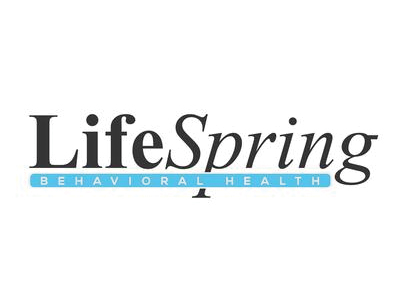Genetic Testing at LifeSpring Behavioral Health

Dr. Hilary Butella DNP, APRN, PMHNP-BC, FNP-C
Genetic testing has recently become a popular concept mentioned often in news outlets and on social media. Services like “23andMe” have grown in popularity and are giving people answers to many of their health-related questions. In psychiatry, we are at the forefront of utilizing genetic testing to help our patients have quicker relief of their symptoms with fewer side effects. You may be struggling with symptoms that have been resistant to treatment, tried many medications with little or no response, or want to start out on the right foot with medications that have a better likelihood of being successful. Maybe you are simply interested in optimizing your health or learning more about your neurochemistry and metabolism. With all the buzz surrounding the topic, now is a good time to explore the concept of genetic testing and to introduce you to the options that are offered at LifeSpring Behavioral Health.
What is genetic testing?
Genetic testing analyzes variants of DNA that can change how genes are expressed. Variants in DNA that we analyze at LifeSpring can affect how we make and regulate neurotransmitters and how we metabolize medications. Our genes can also play roles in processes like inflammation, mitochondrial health (the body’s power houses), and autophagy (the body’s ability to remove cellular waste).
How is genetic testing performed?
Genetic testing is performed in office and includes a cheek swab to collect a sample of your DNA. The results are mailed to a laboratory where the sample is analyzed. At LifeSpring, we partner with Fagron Genomics to order and analyze genetic tests. Personalized patient results are typically available within 3 weeks and are reviewed during a consultation appointment with your provider. It is important to remember when doing genetic testing you must have no food and only water for 2 hours prior to testing.
What genetic testing options are offered at LifeSpring?
Neurotransmitter Panel
Results of this panel tell us a great deal about how our body makes and regulates neurotransmitters such as serotonin, dopamine, GABA, and glutamate. Using this panel, we can show predispositions to factors like anxiety and depression. We can predict likelihood of success with medications used to increase dopamine in the body such as ADHD medications. We can identify variants that can affect how serotonin is made, transferred, and received in the brain which can predict the success of medications like selective serotonin reuptake inhibitors (SSRIs). One popular gene we assess is the MTHFR gene which is responsible for methylation or metabolism of B vitamins including folic acid. When patients have mutations or variants on MTHFR genes they can struggle from a lifetime of symptoms like fatigue, anxiety, depression among many others. Other genes that are very useful to assess are the GAD genes. GAD genes regulate the balance of the neurotransmitters GABA and glutamate. Often, patients present with treatment resistant anxiety that has not responded to previous medications. Conventional psychiatry teaches us to primarily treat anxiety using serotonergic medications such as SSRIs. For patients with GAD mutations, a more successful approach to relieving symptoms would be to utilize medications that either reduce glutamate or increase GABA.
Pharmacogenomic Panel
A pharmacogenomic test is an assessment of genetic variants that are known or thought to impact how a drug is metabolized by our bodies (pharmacokinetics) or how the drug acts on our bodies (pharmacodynamics). Test results include a list of the genes that were examined, your genotypes for each gene (there may be many variants within a gene), and a general description of what the genotype results mean. The test report provides a list of medications that are affected by the genetic factors assessed by the test. Examples of genotype results include how they may impact your ability to metabolize certain medications (e.g., poor metabolizer, intermediate metabolizer, normal metabolizer, rapid metabolizer, ultrarapid metabolizer). A pharmacogenomic test might help make sense of prior medication experiences or be useful in making future medication decisions.
Developmental Panel
The developmental panel is helpful for someone who wants to optimize their health and wellness, or is looking for answers to unexplained health concerns like fatigue or mental health symptoms. This panel analyzes genes that affect inflammation in the body and brain which can lead to a host of symptoms. It can also tell us about the body’s ability to detoxify itself and optimize health. It analyzes genes that affect a process called autophagy, which is the cells ability to remove wastes. The neurotransmitter panel mentioned above as well as methylation gene analysis are also included in the developmental panel.
How Much Does Genetic Testing Cost?
Genetic testing at LifeSpring typically costs between $200-$600, which does not include the cost of the office visit. Insurance companies typically do not reimburse for costs of genetic testing, but receipts for tests can be submitted to your insurance company for partial or full coverage depending on your plan.
Considerations
It is important to remember that genetic tests are used as a tool for you and your provider to develop a treatment care plan for your concerns. They do not provide a diagnosis or replace an evidence-based approach to prescribing medications and managing your symptoms. Remember, there are many reasons why people may respond or react differently to medications. Genetics may be one piece of this puzzle, but other factors like age, gender, liver function, kidney function, drug interactions, body composition, other health conditions, and lifestyle choices may also impact how medications work. Since our genes are inherited from our parents and shared with our biological family members, the results of a pharmacogenomic test may also have relevance to our relatives. Genetic testing can also be used in conjunction with a thorough blood test panel to assess your thyroid health and look for vitamin/mineral deficiencies or anemia for example which can help to explain physical and psychiatric symptoms. It is also important to consider that psychotherapy is a recommended treatment for many psychiatric conditions and medication should be considered an adjunct to psychotherapy in most cases.
About the Author
Dr. Hilary Butella DNP, APRN, PMHNP-BC, FNP-C is a doctorly prepared nurse practitioner with board certifications in psychiatry as well as family medicine. She offers specialization in genetic testing and preformed her doctoral capstone in psychiatry genetics.
How to Schedule
To schedule an appointment with Dr. Butella, please contact LifeSpring Behavioral Health at 281-528-1523. Please advise the receptionist that you are interested in genetic testing so that DNA sample retrieval and results consultation can be scheduled.
Bishop, J. (2022). Pharmacogenomic testing. National Alliance on Mental Illness. Retrieved from www.NAMI.org.


















